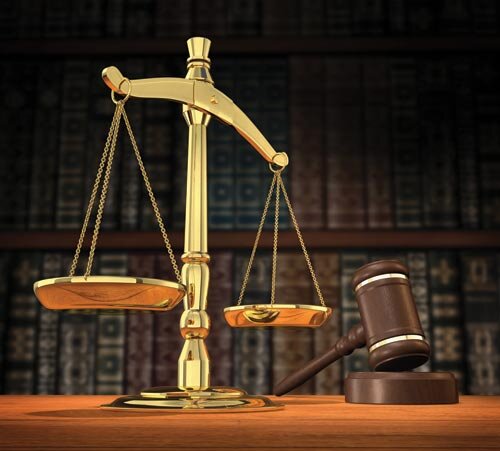Best Energy Regulatory Law Lawyers in Kampala
Share your needs with us, get contacted by law firms.
Free. Takes 2 min.
List of the best lawyers in Kampala, Uganda
About Energy Regulatory Law in Kampala, Uganda
Energy Regulatory Law in Kampala, Uganda deals with the rules, regulations, and legal principles that govern the generation, transmission, distribution, and sale of electricity and other energy forms. The sector is primarily overseen by the Electricity Regulatory Authority (ERA), established under the Electricity Act, 1999. Energy Regulatory Law aims to ensure a reliable, efficient, and sustainable energy supply while safeguarding the interests of consumers, investors, and the public. It covers licensing, tariff approval, quality standards, and dispute resolution related to energy services and infrastructure.
Why You May Need a Lawyer
Navigating the legal landscape of the energy sector can be complex. Individuals and businesses may require a lawyer in various situations, such as:
- Applying for energy licenses or permits
- Negotiating energy supply or interconnection agreements
- Resolving disputes with energy providers or regulatory bodies
- Understanding compliance obligations with national energy laws and ERA regulations
- Advising on environmental impact and land use concerns related to energy projects
- Assisting in investment and financing arrangements for energy infrastructure
- Responding to enforcement actions or penalties imposed by regulators
Local Laws Overview
Several laws regulate energy activities in Kampala, with the Electricity Act, 1999, as the central statute. Important elements include:
- The necessity of obtaining a license from the ERA for generation, transmission, distribution, or sale of electricity
- Prescribed standards for the construction and operation of energy facilities
- The framework for determining and reviewing tariffs to protect consumers and ensure the financial viability of suppliers
- Regulations promoting safety and reliability in energy supply
- Provisions for dispute resolution between stakeholders and the regulator
- Compliance with environmental and social impact requirements when establishing energy projects
Other relevant statutes include the National Environment Act, the Investment Code Act, and sector-specific rules enacted by the ERA and Uganda National Bureau of Standards.
Frequently Asked Questions
What is the role of the Electricity Regulatory Authority (ERA)?
ERA is the main regulator for the electricity sector in Uganda. It is responsible for issuing licenses, setting and approving tariffs, monitoring compliance, and ensuring consumer protection.
Do I need a license to generate or distribute electricity?
Yes, individuals or businesses must obtain appropriate licenses from ERA before engaging in generation, transmission, distribution, or selling electricity in Kampala and throughout Uganda.
Can I install a solar energy system for my business or home?
Small-scale solar installations for personal or business use generally do not require a license, but larger installations or those supplying energy to the public may need ERA approval. It is important to check the thresholds and requirements.
What determines the cost of electricity in Kampala?
Electricity tariffs are set and reviewed by ERA based on production costs, investment needs, and consumer protection considerations. Public consultations are part of the tariff-setting process.
How are disputes in the energy sector resolved?
Disputes are first addressed through ERA's internal dispute resolution mechanisms. If unresolved, parties may escalate matters to the Electricity Disputes Tribunal or courts of law.
Are there incentives for investing in renewable energy?
Yes, Uganda encourages investment in renewable energy through tax incentives, favorable licensing, and support programs, particularly for solar, wind, and small hydro projects.
What environmental requirements apply to energy projects?
Most energy projects require an Environmental Impact Assessment (EIA) approved by the National Environment Management Authority to ensure compliance with environmental regulations.
Can energy supply be disconnected for non-payment?
Yes, energy companies may disconnect supply for non-payment, but they must follow legal procedures and provide adequate notice to the affected customer.
How can consumers address poor service or billing issues?
Consumers can raise complaints with their service provider first. If unresolved, they can file a complaint with the ERA or seek legal guidance for further action.
What penalties can apply for non-compliance with energy regulations?
Non-compliance can result in fines, suspension or revocation of licenses, or legal action. The specific penalty depends on the nature and severity of the violation.
Additional Resources
Individuals and businesses needing more information or support can consult the following resources:
- Electricity Regulatory Authority (ERA) - Handles licensing, complaints, and sector oversight
- Ministry of Energy and Mineral Development - Responsible for policy in the energy sector
- Uganda National Bureau of Standards - Sets standards for equipment and installations
- National Environment Management Authority (NEMA) - Regulates environmental compliance for energy projects
- Electricity Disputes Tribunal - Handles dispute resolution within the electricity sector
- Uganda Law Society - Offers directories of lawyers, including those specializing in energy law
Next Steps
If you need legal assistance in Energy Regulatory Law in Kampala, Uganda, consider the following steps:
- Identify the specific area of concern, such as licensing, compliance, investment, or dispute resolution
- Gather all relevant documents, correspondence, and evidence
- Research and contact a qualified lawyer experienced in energy regulatory matters
- Consult with the regulatory authority (ERA) for initial guidance on administrative procedures
- Act promptly, since regulatory and legal processes may have strict deadlines
- Participate in any required consultations, hearings, or negotiations
A legal professional who understands Uganda's energy sector laws can help protect your rights, minimize risks, and ensure compliance with all relevant regulations.
Lawzana helps you find the best lawyers and law firms in Kampala through a curated and pre-screened list of qualified legal professionals. Our platform offers rankings and detailed profiles of attorneys and law firms, allowing you to compare based on practice areas, including Energy Regulatory Law, experience, and client feedback.
Each profile includes a description of the firm's areas of practice, client reviews, team members and partners, year of establishment, spoken languages, office locations, contact information, social media presence, and any published articles or resources. Most firms on our platform speak English and are experienced in both local and international legal matters.
Get a quote from top-rated law firms in Kampala, Uganda — quickly, securely, and without unnecessary hassle.
Disclaimer:
The information provided on this page is for general informational purposes only and does not constitute legal advice. While we strive to ensure the accuracy and relevance of the content, legal information may change over time, and interpretations of the law can vary. You should always consult with a qualified legal professional for advice specific to your situation.
We disclaim all liability for actions taken or not taken based on the content of this page. If you believe any information is incorrect or outdated, please contact us, and we will review and update it where appropriate.

















